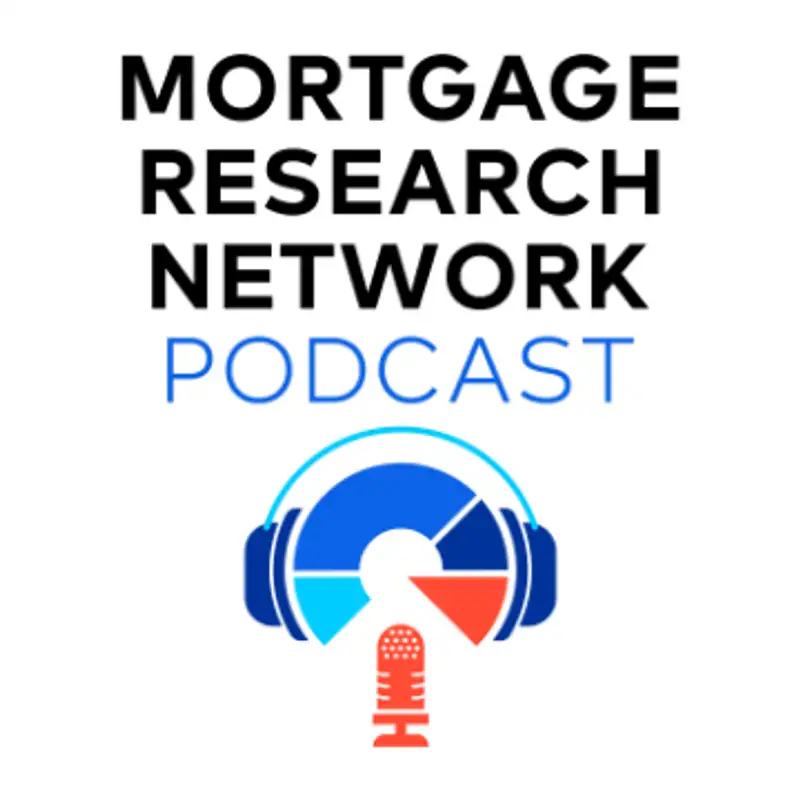When Rates Rise After Pre-Approval: What Buyers Can Do
Welcome to the Mortgage Research Network Podcast. This podcast brings you the latest in mortgage and real estate news 3 times a week. The audio is AI generated, but content is fact-checked by me, Tim Lucas, editor of MortgageResearch.com and a former mortgage professional. And with me is Craig Berry, a mortgage originator with 25 years experience.
Hi everyone.
It’s a common story: mortgage rates rose after you got pre-approved. You worry that the higher payment will disqualify you. Will your maximum home price drop?
Well, a quarter-point increase in mortgage rates could slash $10,000 off your home buying budget. The way interest rates are moving lately, it pays to track rates, whether they are going up or down.
If rates drop, you might afford more home. But the reverse is true.
That's such a critical point, and it really shows how volatile the housing market has become. I've been watching these trends, and it's fascinating how even small rate changes can have such massive ripple effects.
Let me break down what's happening with some real numbers. If someone got pre-approved at 6.25% for a $420,000 home, and rates tick up to just 6.5%, suddenly they're looking at a maximum price of $410,000. And if rates climb to 7.5%, that same buyer's purchasing power drops all the way to $373,000.
Those numbers are pretty eye-opening. How are people actually dealing with these sudden changes in their buying power?
The impact really depends on your debt-to-income ratio, or DTI. Some mortgage types actually allow DTI ratios up to 45%, and FHA loans can go even higher for strong applicants - we're talking over 50%. So a rate increase doesn't automatically mean game over.
So there's more flexibility in the system than most people might realize?
Exactly! Let's say you're looking at a $400,000 home as rates climb from 6.25% to 7%, your DTI might increase from 41.5% to 43.8%. For many loan programs, that's still totally workable. But here's where buyers need to get creative - there are actually several strategies people often overlook. First, there's the rate buydown option. Think of it like pre-paying some interest to get a better long-term deal. But my favorite strategy is the fixer-upper approach. You look for homes that have been sitting on the market for 30-60 days or more, negotiate a lower price, and often get the seller to help with closing costs or rate buydowns.
That's really thinking outside the box. Are there other creative solutions people should consider?
You know what's often overlooked? Down payment adjustments. Moving from 5% to 10% down might not dramatically reduce your monthly payment, but it could help you qualify with a higher DTI ratio. And here's a pro tip. you need to be strategic about how you track rates during your search.
What's the best way to stay on top of rate changes? There's so much information out there.
Skip those outdated surveys like Freddie Mac's, which can be 3-4 days behind. Instead, check real-time providers. And don't panic every time the Fed makes an announcement. Mortgage rates don't actually follow Fed rates directly.
Speaking of things that affect approval, it's not just about interest rates, right?
Oh man, this is crucial. Property taxes, HOA dues, insurance rates can all shift from your initial estimates. Each change can chip away at your qualifying amount. I've seen cases where these "minor" costs ended up making or breaking a deal. Stay flexible and maintain open communication with your lender throughout your search. Don't let rate changes paralyze you into inaction. Instead, be prepared to adapt your strategy - whether that means considering a different neighborhood, looking at fixer-uppers, or adjusting your down payment. The market might throw curveballs, but with the right preparation, you can still hit your homebuying goals.
That's really solid advice - it's about being prepared while still moving forward.
Exactly! And remember, every market challenge creates opportunities. Whether it's negotiating better terms on a house that's been sitting, or using creative financing solutions, there's usually a way to make it work if you're willing to think outside the box. That's about all the time we have for this topic, but we go into even more detail on the site. To learn more, type rates went up after pre-approval into the search bar at Mortgage research.com. We'll see you next time on the Mortgage Research Network Podcast.
